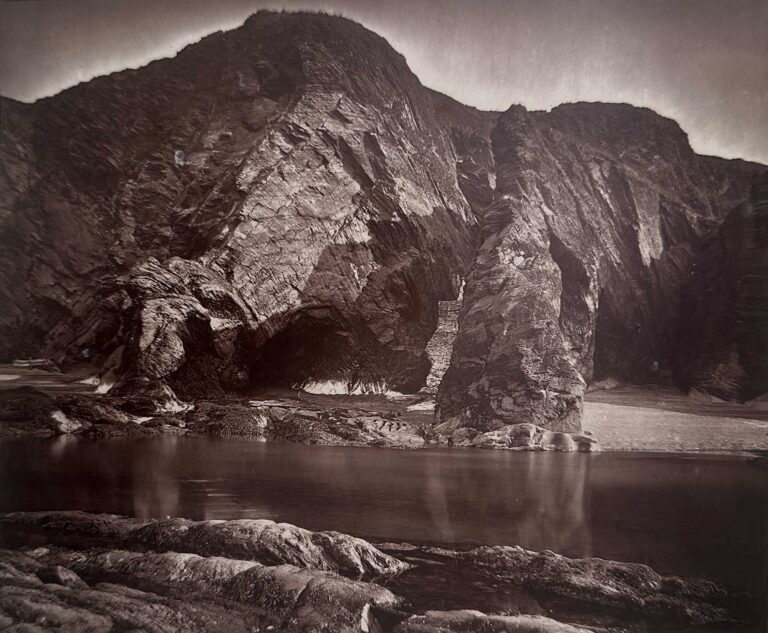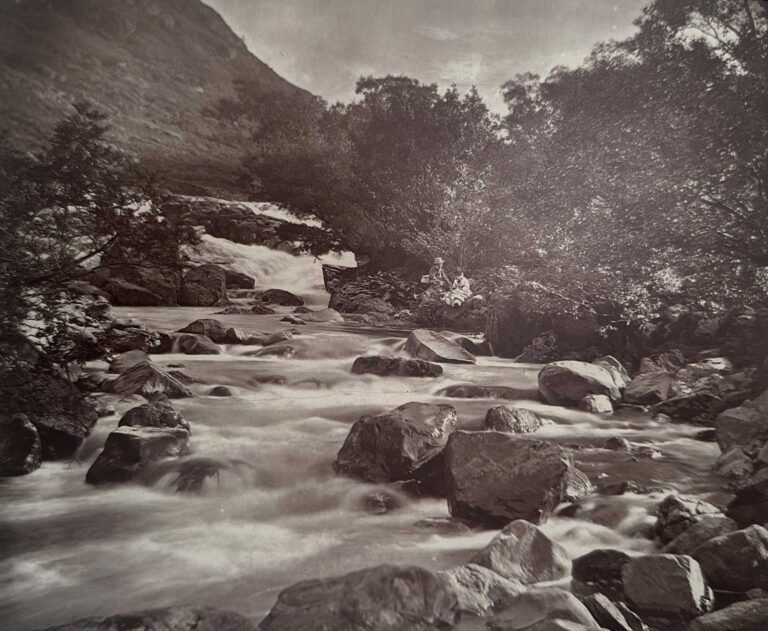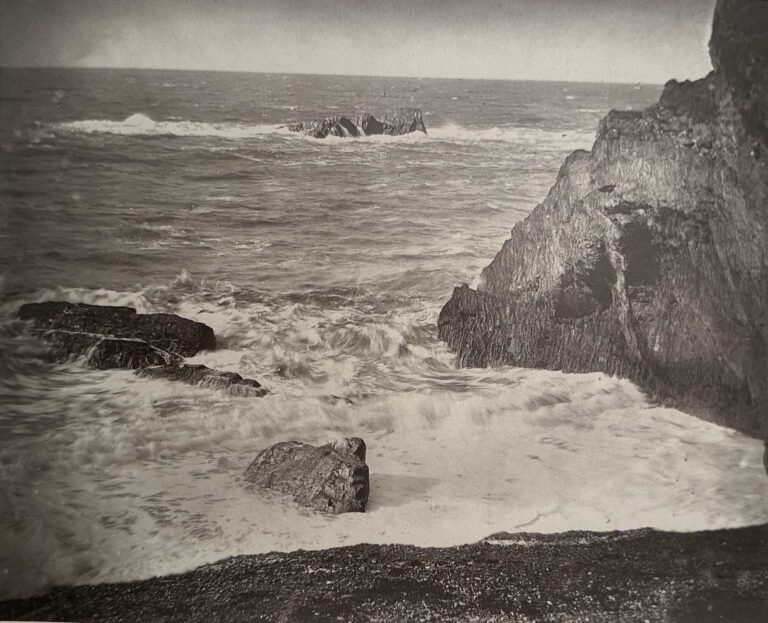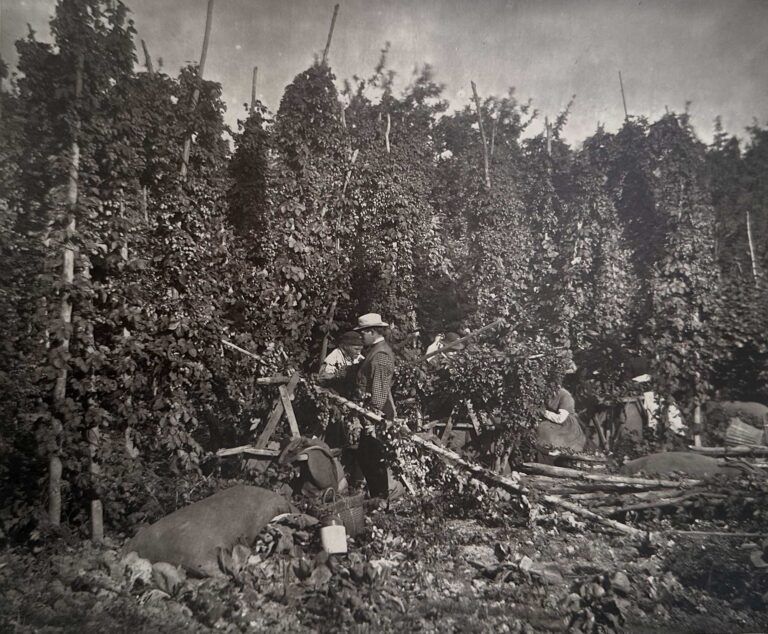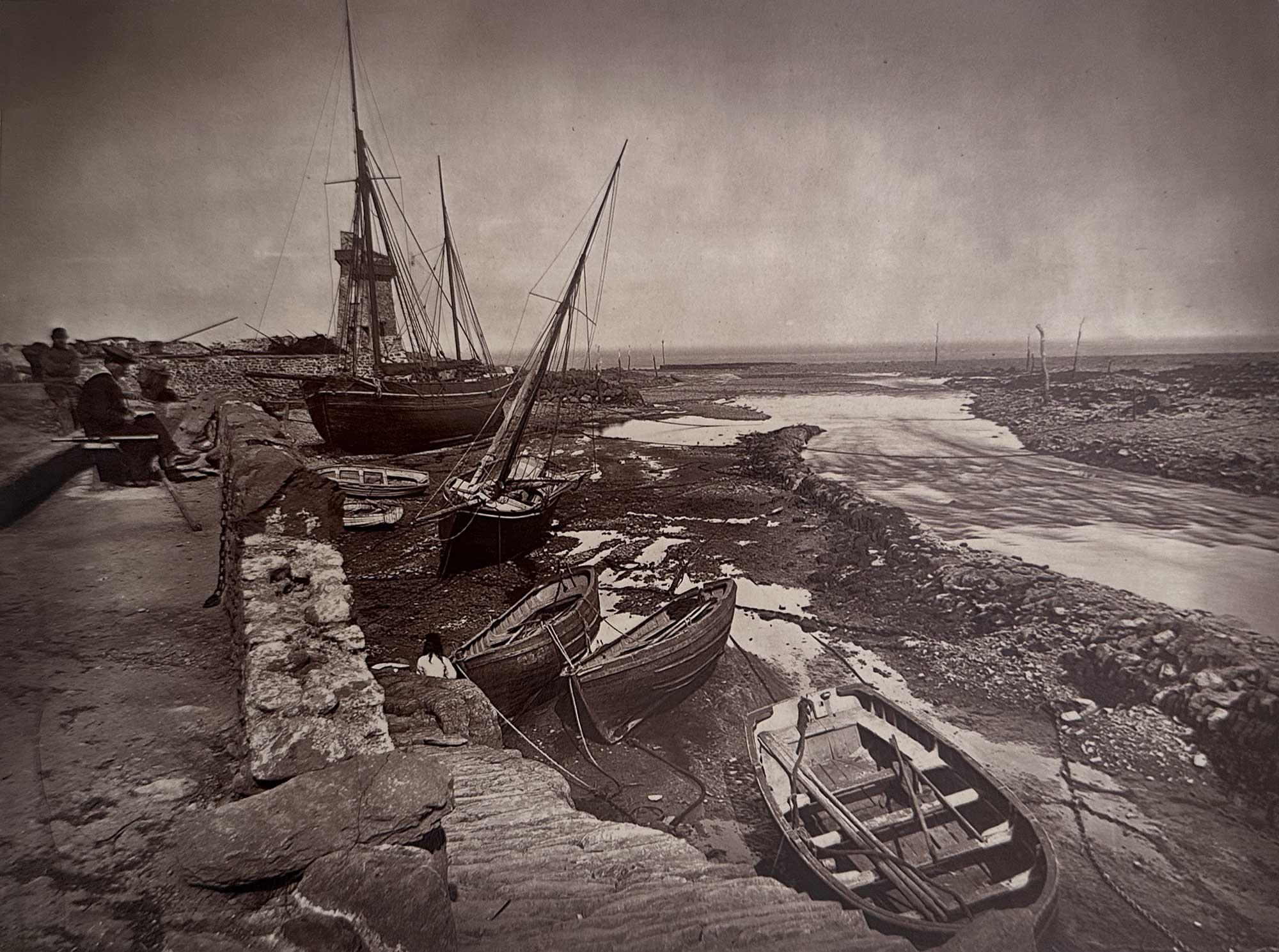
Low Tide
Descriptive letterpress printed opposite this photograph:
LOW TIDE.
LOW TIDE⎯the time of enforced idleness among fisher-folk, the time for spinning interminable yarns, mending nets, or storing away sleep in advance, as a set-off against the watchfulness exacted in long nights at sea. Laid bare daily by the ebb and flow of the tide, the little harbour can have no secrets. The waste and refuse of its bed, its geological features, the dangerous pool here, and the upheaval there, are as familiar as the anchors with rusty flukes and the hard coils of cordage and weather-stained boats drawn up high and dry above.
The scene is a familiar one enough anywhere around the English coast: a break in the long line of cliffs, a chasm marked by white foam and yellow sands, red roofs clustering about a narrow wharf, a climbing street, and a grey mouldering church above. In the midnight watch at sea, in far-off climes, on Indian plains, or in distant colonies, the vision of such a simple scene often rises unbidden to the exile’s mental gaze, and brings with it thoughts of “long ago.”
The homely sea-boat contrasts its patched sides with the flowing lines and delicate curves of the tiny yacht; the one constructed for pleasure, the other for use, “to live their life and die their death about English rocks.” Hard is the life of the toilers of the sea! Day by day, year by year, the same struggle with the elements to win daily bread for wife and children; and often at last, after some more than usually wild winter’s night, they return no more.
Beyond, grey fats stretch seaward, and the harbour-bar lies moaning. The tide comes stealing in from point to point, lapping up first one pile and then another until all is submerged, and the boats begin to wabble and plunge and shake themselves as from sleep, and finally right themselves steadily as for work. And this goes on from age to age-” the joy and beauty of it all the while so mingled with the sense of unfathomable danger, and the human effort and sorrow going on perpetually; waves rolling for ever, and winds moaning for ever, and faithful hearts trusting and sickening for ever, and brave lives dashed away about the rattling beach like weeds for ever.”
